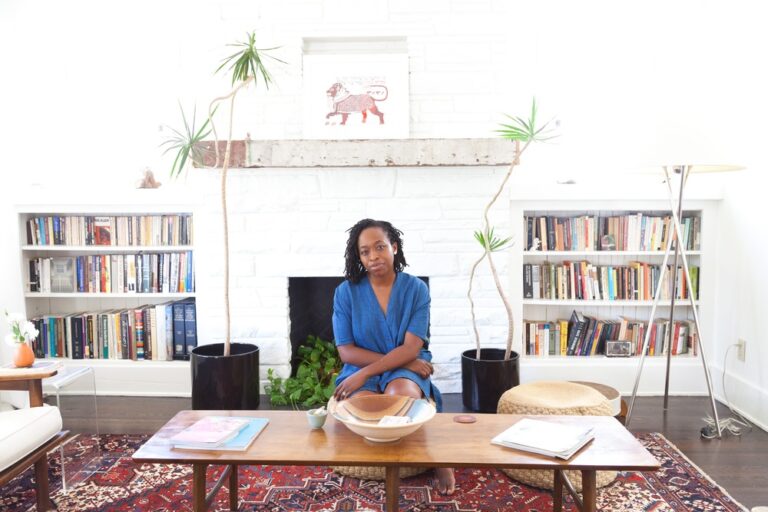When people think of estate planning and wills, they tend to think it’s a consideration for only the considerably rich. But as estate planning lawyer Lori Anne Douglass has already taught us, it’s something everybody should have and do.
And if you have kids, the benefits of having a will far outweigh the downsides, according to Douglass. Read on to learn how you can protect your children’s personal and financial futures in the event of your death, and why women especially need to care about estate planning.
How do you plan for your children in your will?
The most important thing is you nominate legal guardians. Otherwise, all your family members have the same right in the court’s eye. It could be your brother or sister who cannot stand your children—but once your children come with $5 million estates, your brother might have love for his nieces and nephews. Or you might also have some family members who are very loving people, but are bad with money. And you have other family members who aren’t so loving, but are good with money. In your will you can separate the physical guardians from the trustees who hold the money.
If the parents die and minors are left with money, they can’t get money under the law. So if there’s no will, then that money is deposited with the guardian and the court. And the guardian has to account to the court every year for that money until the child turns 18—there’s legal fees associated with that.
What other things can you stipulate about your children in a will that aren’t about money?
You can put anything you want about your children. I have people who have provisions that if they’re children don’t graduate from college, they get less than if they do graduate from college. Children born out of wedlock are not considered [to be] the grandchildren, or “do not issue [inheritance] until there’s proof of paternity.”
Oh wow!
[Say if] you become a substance abuser, the trustees can revoke distributions from the trust except for rehabilitation. You can put whatever. I have some clients who put in their wills, if they should die while the children are minors, they ask the children’s guardian to move into their home so the kids could continue through school and graduate from their high school.
How do you set up a trust for your kids?
A trust is a contract between the person who is the grantor, [whose] assets [are put] into the trust; the trustees, who become the legal owner of the trust assets; and the beneficiary. Trusts are a way to own something where you separate the ownership from the grantor—the person who has the asset—to the trustee; another legal entity becomes the owner.
Trusts are not something a person can do themselves. You have to go to an attorney, and you have to go to one who specializes in estate planning. They’re very complicated. It’s one thing if you say, “Oh, I have extra money, I want to start putting money away for my child’s college.” You can set up a 529 plan. But when you want to set up a trust, you really have to go to a lawyer who knows what they’re doing, who figures out [why] you want a trust and picks the one that’s best for you and your financial circumstances.
Trust-based planning means housing your assets in a vehicle that is saved in trusts for generations. It doesn’t go outright to the children or the grandchildren. They can be inside the will or a standalone trust, but it’s just a [tool for] generational wealth building and creditor protection. If an elderly parent dies and the children are in their 40s or 50s, if you leave money to them in trusts and they get divorced, that asset is protected. But if you gave your child all that money outright and they just put it in a joint account, then it would be subject to the divorce.
The reason for trust-based planning is it helps to create generational wealth by overseeing the management of it more effectively, but it also provides creditor protection and protection for the beneficiaries for future years from creditors or from themselves! (Laughs)
What are the things you can do by yourself, and what are the things that you absolutely need a lawyer for?
What you can do for yourself is the medical [and] financial directives. (Read part one for more details.) Get those from your state’s website. Every single person in your family over 18, properly execute them and make sure you know where they are.
Beneficiary designations. You want to make sure if you have beneficiary designations, especially on employee benefits, [that] they’re correct and updated. People should make sure the deeds to their property are correct, so that the property will go to who you want it to go to.
Bank accounts. [See] if you can [make it] a pay on death, or an “in trust for” [account].
Those things anyone can do. But I will say, if your estate is in excess of $1 million, you really need to see a lawyer. Even if you have beneficiary designation or pay on death [bank account], your estate may owe estate taxes. All of this stuff has to be coordinated. [Let’s say] the year you die you have a final income tax payment: Where is the money? Or there’s medical bills or credit card bills—whatever the debt, there has to be money to pay that.
You just gave me so much food for thought. Is there anything I didn’t ask you that you think is worth noting in an article about estate planning, specifically geared toward black women?
Statistically the men die first. If you’re married, especially with children, you darn sure want to make sure your husband has his estate planning done, because he’s going drop over dead and you’re going to be the one stuck trying to raise the kids [and] get people through college. The wife is the one that’s going to be here, so the wife is the one that focuses on getting the estate planning done.
Also a lot of people are business owners. If you’re a business owner, you have to take care [of your business interests for when you die].
And single parents: You would definitely want a will so you can nominate an executor. If you have full custody or the other parent is missing in action—either there’s no relationship with the other parent, or the other parent is not an acceptable parent—you need to have a will to say, “I want my child to go to my sister.”
Single people without children, everyone thinks they would leave their estate to [whoever they want]. But if you don’t have a will, it will never go to them if your parents are alive. That’s the law—unless you do a will, you can not alter the state statutes for succession.
There are a lot of people who are raised just by their mother. I told one guy, “Your estate would be split 50/50.” He [said], “Fifty-fifty? My mother did everything for me! My father was barely around.” And I said, “That’s why you should do your will, otherwise that’s where it’s gonna go.” He got focused!
The other reason women need to do it: The woman is the cog. When that person goes, the family blows up. It’s bad enough to lose mom—you’re already grieving. When you’re grief-stricken and having arguments about money, that’s a recipe for disaster. Families don’t ever survive these things because people are so upset.
Read part one of our conversation with Douglass to learn more about .
We made a handy graphic outlining the four things you can do on your own to get your estate plans going. Get started, and share with a friend!
This article is part of our Money series, focusing on both the hard currency and our feelings of self-worth. Read more articles in the .


















